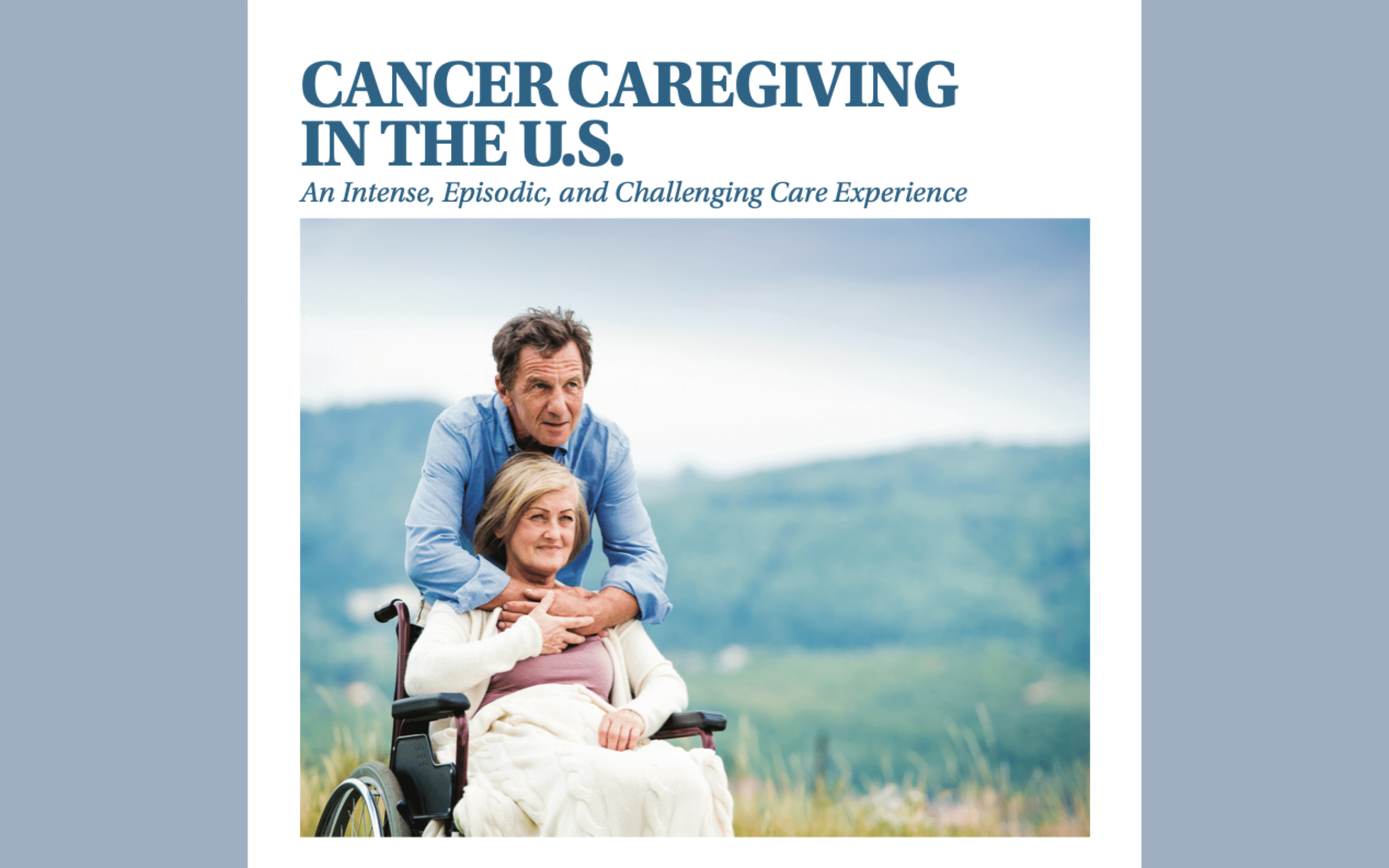This research report (34 pages) provides a statistical analysis of how the caregivers of cancer patients in the U.S. experience their situation. After comparing the experiences of cancer caregivers and non-cancer caregivers, the report identifies intervention programs and public policies tailored to oncology settings that are liable to improve quality of life for both the caregivers and those they support.
The analyses are drawn from the nationally representative study, Caregiving in the U.S. 2015, sponsored by the National Alliance for Caregiving and the AARP Public Policy Institute. From a sample of 1,164 survey respondents (all of whom were caregivers aged 18 and up), 111 provided care to a person with cancer.
Like to know more?
Visit the Caregiving in the United States, 2015 webpage for more details on the statistical survey and its methodology. Note that more recent data from the same survey was published; see Caregiving in the U.S.



